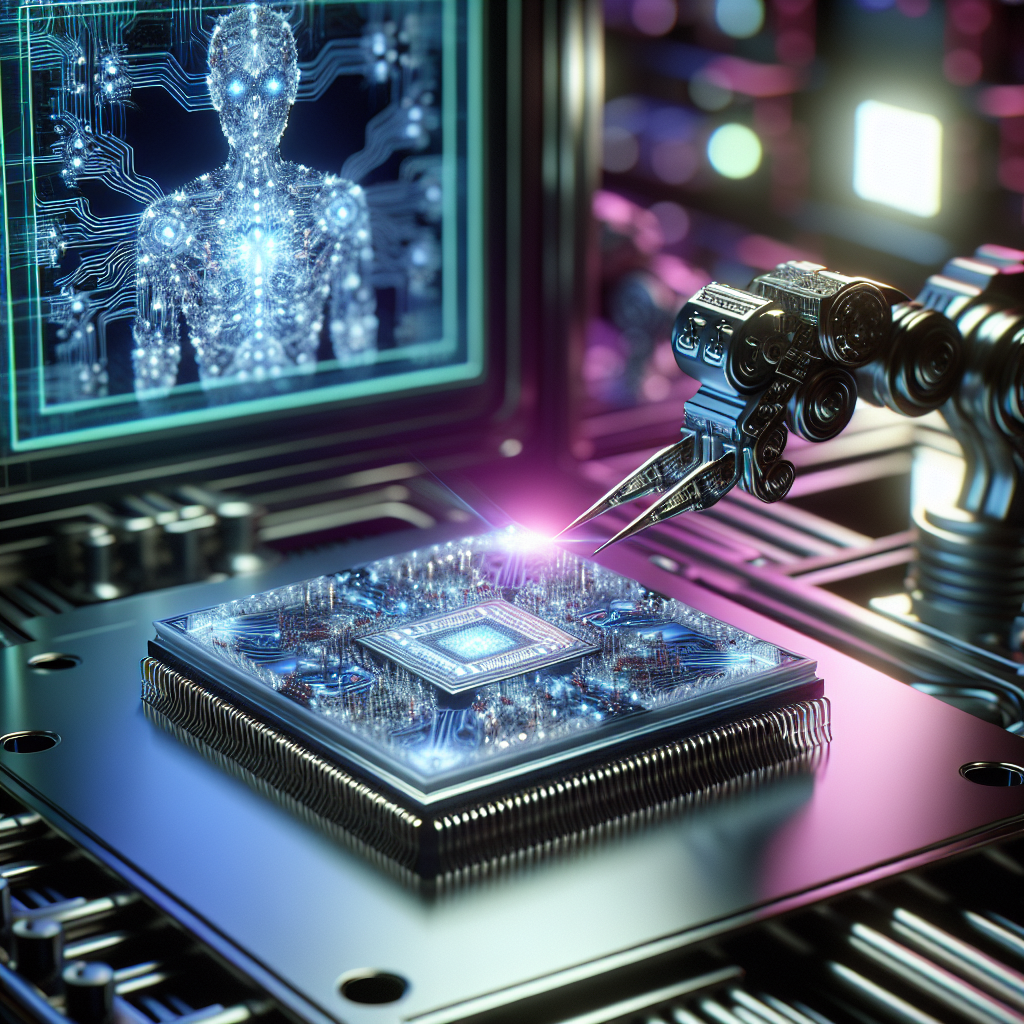AI Designed Computer Chips That The Human Mind Can’t Understand
In the rapidly evolving world of technology, Artificial Intelligence (AI) is making monumental strides. One of the most groundbreaking innovations is the creation of computer chips designed by AI that surpass the capabilities of traditional human-designed chips. This revolutionary advancement raises many questions about the future of technology, the implications for designers and engineers, and what it means for data processing and overall performance.
Understanding the Basics of AI-Designed Chips
To comprehend the significance of AI-designed computer chips, one must first understand what they are. Unlike traditional chips, which are typically designed through human intuition and experience, AI-designed chips are created using algorithms that can analyze vast amounts of data. These algorithms can identify patterns and optimize designs that humans may not even consider.
The Role of Machine Learning
At the core of AI chip design is machine learning. By utilizing machine learning techniques, AI can predict which designs will yield the best performance in specific tasks. The process involves feeding the AI system hundreds or thousands of previous chip designs and their performance metrics, allowing the algorithm to learn and adapt.
Machine learning not only optimizes the design process but also introduces new architectures that may be completely alien to human designers. This divergence can lead to the creation of highly efficient chips that perform better than anything previously possible.
The Advantages of AI-Designed Chips
The advantages of AI-designed computer chips are numerous and significant. Below are some key benefits that highlight the importance of this technology:
1. Enhanced Performance
AI-designed chips can outperform traditional chips in terms of speed and efficiency. By identifying the best possible configurations, these chips can process data much faster, making them ideal for applications requiring real-time processing, such as autonomous vehicles or advanced AI systems.
2. Energy Efficiency
With the increasing demand for computing power, energy consumption has become a critical concern. AI-designed chips tend to consume less power while delivering superior performance. This is particularly important in an era where sustainability is paramount.
3. Rapid Prototyping
The ability to quickly design and test new chip configurations allows for rapid prototyping. This means that companies can innovate more quickly, reduce costs, and bring products to market faster than ever before. AI can assist in simulating the performance of various designs before physical prototypes are created.
The Challenges of AI-Designed Chips
While the benefits are compelling, there are also challenges associated with AI-designed chips. These challenges warrant careful consideration.
1. Complexity and Understanding
One of the most significant issues with AI-designed chips is that they can become so complex that even experienced engineers struggle to understand their inner workings. The black-box nature of AI design raises concerns about transparency and accountability. If a chip fails, it may be difficult to trace the issue back to its source.
2. Ethical Considerations
The idea of machines creating machines raises ethical questions. As AI continues to take on more complex tasks, such as chip design, should there be guidelines or regulations governing their use? These discussions are vital to ensure that technology advances in a responsible manner.
3. Dependence on AI
The heavy reliance on AI for chip design can lead to a decline in traditional engineering skills. While AI can enhance efficiency, there is a risk that critical knowledge about chip design and architecture could become obsolete if engineers do not actively engage in the design process.
Applications of AI-Designed Chips
AI-designed chips are already finding applications across various sectors, revolutionizing industries and creating new possibilities.
1. Artificial Intelligence and Machine Learning
As AI systems become more sophisticated, the demand for powerful and efficient chips increases. AI-designed chips can enhance machine learning algorithms, allowing for faster training and improved performance in AI applications.
2. Internet of Things (IoT)
The growth of IoT devices relies on efficient chip designs that can process data quickly while minimizing energy consumption. AI-designed chips are well-suited for these applications, leading to more intelligent and responsive devices.
3. Telecommunications
With the advent of 5G and beyond, communication systems require advanced processing capabilities. AI-designed chips can manage the high data rates associated with modern telecommunications, ensuring seamless connectivity and improved performance.
The Future of AI-Designed Chips
The future of AI-designed computer chips is bright, with the potential to transform the tech landscape. As AI technology advances, we can expect even more innovative chip designs that challenge our current understanding of computing.
1. Continuous Learning and Adaptation
Future AI systems will likely incorporate continuous learning, allowing them to adapt designs based on real-world performance data. This means that chips could evolve over time, optimizing themselves for specific tasks as they gather more information.
2. Collaboration Between Humans and AI
Rather than replacing human engineers, AI can augment their capabilities. The ideal future scenario involves humans and AI working collaboratively, where AI handles the complex aspects of design while engineers focus on oversight and strategic decision-making.
3. New Possibilities in Technology
The innovations stemming from AI-designed chips could lead to breakthroughs in fields like quantum computing, advanced robotics, and beyond. As these technologies mature, the implications for society could be profound, offering solutions to problems we have yet to fully understand.
Conclusion
AI-designed computer chips represent a significant leap forward in technology, bringing both remarkable benefits and notable challenges. By harnessing the power of machine learning and algorithmic design, we can create chips that are faster, more efficient, and tailored to meet the complex demands of modern computing.
As we continue to explore the possibilities that AI brings to chip design, it is essential to balance innovation with ethical considerations and a focus on the human element. The future holds incredible potential, and the journey of AI-designed chips is just beginning. Embracing this technology responsibly will be key to unlocking its full potential and creating a brighter, more efficient technological landscape.



